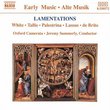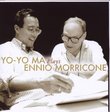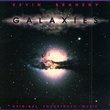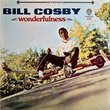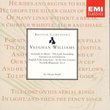| All Artists: Shebalin, Krasni String Quartet Title: String Quartets 1 Members Wishing: 0 Total Copies: 0 Label: Olympia Release Date: 1/11/2000 Genre: Classical Styles: Chamber Music, Historical Periods, Classical (c.1770-1830) Number of Discs: 1 SwapaCD Credits: 1 UPCs: 515524406639, 723723748522, 5015524406639 |
Search - Shebalin, Krasni String Quartet :: String Quartets 1
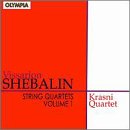 | Shebalin, Krasni String Quartet String Quartets 1 Genre: Classical
|
Larger Image |
CD DetailsSimilar CDsSimilarly Requested CDs
|
CD ReviewsWell-crafted works with advocacy of the Krasni Quartet. David A. Hollingsworth | Washington, DC USA | 01/12/2000 (5 out of 5 stars) "After looking at the Discography of Shebalin's works, I wondered when Shebalin's Quartets for Strings will be available. Before Olympia re-issued and recorded Shebalin's works, it was difficult or even close to impossible to obtain recordings of his works (they were under Melodiya LPs for the most part). But Olympia is again living up to its reputation in recording works of lesser known, yet important composers, Shebalin not excluded.Vissarion Yakovlevich Shebalin (1902-1963)had written nine string quartets as well as a string trio (among the composer's most popular works). As in the case of Myaskovsky (his former professor of composition of the Moscow Conservatory), Kabalevsky, Shostakovich, and even Vainberg (among other major soviet composers), chamber music was among the principal output for Shebalin. In fact, chamber music and instrumental works (especially for piano) were the next important vehicles for music expressionism behind the symphonies.Like the First Quartet of Kabalevsky (1928), Shebalin's First Quartet (1924) shows signs of Myaskovsky's influence (especially of melancholy and reflective expressions). But the Quartets also show confidence and assurance. The first two movements are reflective and easy-going, but also mature and substantive. The Finale is energetic and motoric and provide an appealing ending to this overall impressive piece.Shebalin's Second and Third String Quartets (1935 & 1939 respectively) are more mature than the First, with more advanced musical passages. The Quartets show more of Shebalin's individuality and maintains the lyrical atmosphere of his First Quartet. They are also engrained in Russian tradition, but also accessible in an universal/cosmopolitan sense. Hints of Shostakovich are more of presence here, but again, Shebalin's individuality is more of dominance throughout. The Quartets show organic growth and a sense of direction and calculation (impressive and admirable, especially when written during the Stalinist era). The Krasni Quartet (formed in 1998) performed these appealing scores well and with amiable intimacy. Their understanding and appreciation of Shebalin's works were apparent throughout. There are few places, however, where I sense some hesitation and uncertainties, especially on the Second Quartet. However, the confidence of the Krasni Quartet outshines them and the performances deserve a trophy. Excellent recording by Olympia Ltd and a very well written and informative music essay by Per Skans, as always. I look forward to future recordings (especially of Shebalin's chamber works) of the promising Krasni Quartet. Well done!Recommended, with every ounce of enthusiasm!"
|

 Track Listings (11) - Disc #1
Track Listings (11) - Disc #1